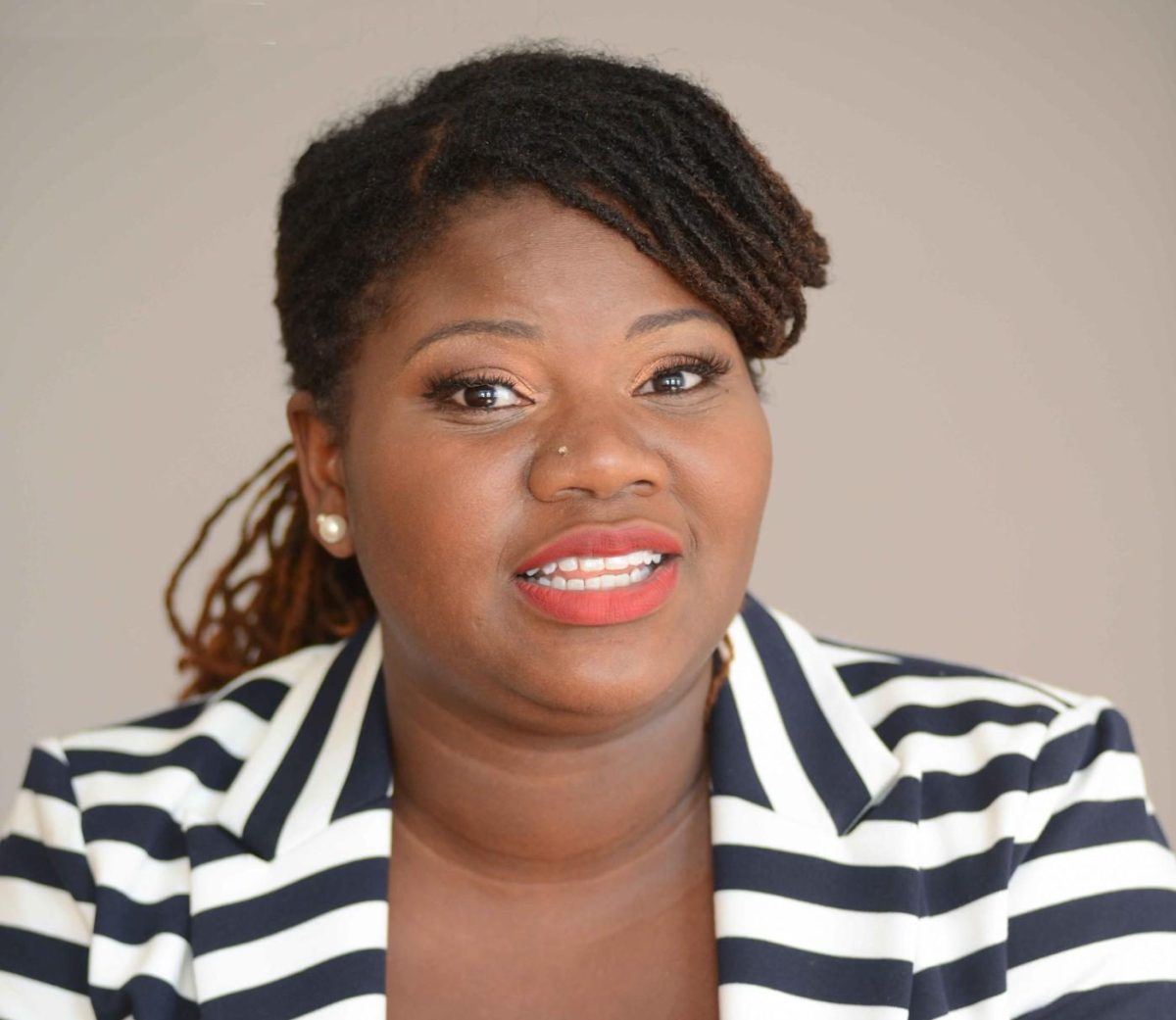Author and scholar Kellie Carter Jackson visited Northeastern Oct. 30 to talk about her newly published book titled “We Refuse: A Forceful History of Black Resistance.” Northeastern’s Africana Studies Program organized the event, and people of all backgrounds filled the conference room of the Alumni Center to hear Jackson discuss her work.
Régine Michelle Jean-Charles, the director of Africana studies, dean’s professor of culture and social justice and professor of Africana studies and women’s, gender, and sexuality studies, warmly welcomed everyone into the room with an introduction to Jackson.
“There’s a lot going on at this current moment. As a literature scholar, I always turn to the imagination as a place where not only can we seek refuge, but we can also imagine different possibilities,” Jean-Charles said. “And Dr. Kellie Carter Jackson does exactly that with her work.”
Jackson’s work centers on the history of Black resistance and conveys multiple perspectives on how Black people combat white supremacy. Earlier this summer, Jackson, who holds a doctorate degree in American history from Columbia University, went on a condensed two-week book tour, visiting numerous cities including Atlanta, Baltimore and Washington, D.C., to inspire readers with her work.
“A lot of my books are trying to give readers either people or stories that they have never heard before, and to bring those stories to the light,” Jackson said in an interview with The News. “I tell my students all the time that I always try to do two things: I try to teach them something new that you do not know anything about, or I tell you something different about something or someone that you thought you knew about.”
Throughout her career, Jackson has contributed to numerous scholarly resources on Black resistance through storytelling on podcasts and her roles as the historian-in-residence of the Museum of African American History in Boston and associate professor and chair of the Africana Studies Department at Wellesley College.
Jackson also made an appearance in the Netflix documentary “Stamped from the Beginning,” which gave insight into her work around the voices of Black women whose struggles are constantly analyzed through intersectionality to debunk the intersecting domain of oppression.
At her Oct. 30 talk, “I want to write a love letter to the Black community,” Jackson brought the room on a journey of empowering stories that inspired her career.
Jackson started with an anecdote about her great-grandmother, Arnesta, who suffered a deadly infection from a wound caused by a rusty nail. But when her mother, Jackson’s great-great-grandmother, sought out help from a wealthy, white doctor, he wanted Arnesta to stay after the treatment and work for his family as payment.
After Arnesta’s grandmother — whose name is lost in the family record — refused, Arnesta walked with a limp and had to face the stigma surrounding disability at the time. This is the story that Jackson carries with her to remind her that the problem is not the rusty nail, but white supremacy.
“We Refuse: A Forceful History of Black Resistance” was inspired by the refusal Jackson saw in her ancestor. She emphasized the power of refusal within resistance, adding that a forceful “no” can take on many shapes and forms and be expressed in both language and attitudes.
“[Refusal] is packed full of energy and meaning. We refuse is similar to Black colloquialism such as ‘Nah’ or ‘No’ or ‘Not today, Satan!’ or my favorite, ‘Oh, hell no,’” Jackson said, eliciting laughter from the audience.
Jackson prefaced her book with a pushback on the dichotomy of Black people’s reaction to white supremacy: violence and nonviolence.
“The constant refrain is for the harm; [the harm forces us] to forget violence, forget injury and forfeit their agency,” Jackson said. “Friends, we have more than two options.”
She also said the focus of the problem is not the oppressed but the oppressor. Nonviolence does not confront white supremacy, capitalism and militarism with its destruction of Black people’s experience, Jackson added.
“But [protest] marches don’t keep people alive; what did we get? Now, it is the performance of passive power that ensures that those in power never structurally change,” Jackson said. “To white supremacy, nonviolence is like scarecrows.”
Jackson then presented the main pillars of her book: revolution, protection, force, flight and joy.
To start, Jackson detailed the story of Carrie Johnson, who shot a detective in his knee to protect her father and herself during the Washington, D.C., race riot in 1919. Johnson’s fierce response to her father being held at gunpoint is featured in Jackson’s chapter on empowering resistance by force.
She then told the audience another story of refusal through joy from a girl named Nancy. During the time of slavery in Alabama, despite the dehumanization of enslavement, Nancy transcribed happiness, the ultimate human emotion, to other Black people through her dance moves. She stole material to color her dress yellow, a vibrant color that contrasts the muted clothes Black people were forced to wear at the time.
“Refusal is not a simple declaration; it is a verb,” Jackson said. “Moreover, joy is not near optimism; it is a conviction that nothing big or small can be tackled without first believing in the possible.”
Correction: This article was updated Wednesday, Nov. 6 at 5:00 p.m. to correct a description of an injury Jackson’s great-grandmother suffered.
The Huntington News is dedicated to serving the Northeastern University community with original, professional reporting and creating an environment in which student journalists can learn from one another. Support an independent, free press at Northeastern University with your donation today.











